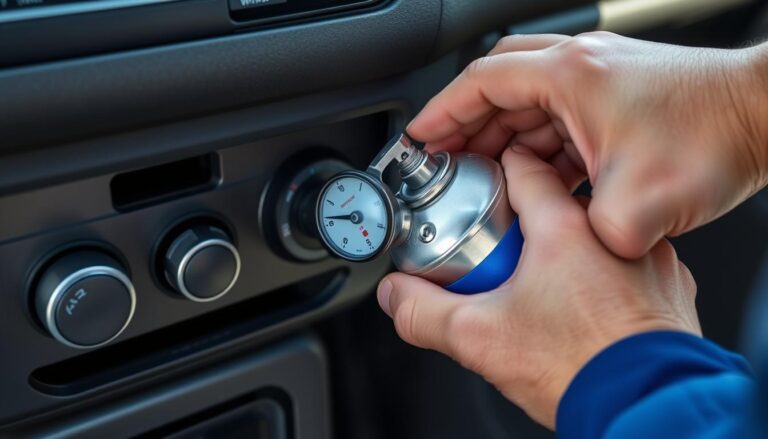Yes, an exhaust leak can cause loss of power in a vehicle due to decreased engine efficiency. An exhaust leak can lead to a decrease in engine power as it disrupts the proper functioning of the exhaust system.
The leak allows for the escape of exhaust gases before they can be properly processed by the system, resulting in a loss of power. Additionally, the leak can lead to an imbalance in the air-fuel ratio, further impacting engine performance.
It is important to address any exhaust leaks promptly to ensure optimal engine power and efficiency. Regular maintenance and routine inspections can help prevent exhaust leaks and maintain the performance of your vehicle.
Signs Of Exhaust Leaks
Exhaust leaks can impact your vehicle’s performance. Strange noises and decreased power are common signs of exhaust leaks. A leak can allow exhaust gases to escape before they reach the rear of the vehicle, resulting in a loss of power. Additionally, the engine may have to work harder, leading to decreased fuel efficiency. Moreover, the leaking gases can also affect the engine’s air-fuel mixture, causing it to run poorly. If left unaddressed, exhaust leaks can lead to damage of internal engine components, e.g., valves, pistons, and catalytic convertors. It is important to promptly address any indications of exhaust leaks to ensure optimal vehicle performance and safety.
Effect On Engine Power
Exhaust leaks can lead to loss of power in the engine. They affect exhaust flow resulting in reduced power output. This disruption impacts combustion efficiency, leading to lower performance levels in the vehicle. Inefficient exhaust systems may also cause engine misfires and decrease overall power generation. It is crucial to address exhaust leaks promptly to maintain optimal engine power and performance.
Risks Of Ignoring Leaks
Ignoring an exhaust leak in your vehicle can lead to various risks and consequences, affecting both the performance of your car and your health.
Damage to Engine Components: One of the main risks of ignoring an exhaust leak is damage to engine components. The escaping gases can cause a backpressure, leading to cracks and leaks in the manifold or exhaust pipes. This can result in a loss of power, reduced fuel efficiency, and potential engine damage.
Health Hazards from Fumes: Another critical risk associated with exhaust leaks is the health hazards caused by the fumes. The toxic gases released from the leak can enter the cabin, exposing occupants to harmful carbon monoxide. Prolonged exposure can lead to headaches, dizziness, nausea, and even unconsciousness or death in severe cases.
Detecting Exhaust Leaks
Visual Inspection: One way to detect exhaust leaks is through a visual inspection. Look for signs of damage or corrosion in the exhaust system components. Check if there are any cracks or holes in the pipes, muffler, or catalytic converter. Pay close attention to the connections between the different parts of the exhaust system. If you notice any rust or discoloration around these areas, it could indicate a leak. Another method to detect exhaust leaks is by using smoke testing. This involves introducing smoke into the exhaust system and looking for any leaks where the smoke escapes. The smoke can be generated using a smoke machine or by using a smoke tester. By performing a visual inspection or using smoke testing, you can identify any exhaust leaks that may be causing a loss of power in your vehicle.
Repairing Exhaust Leaks
Exhaust leaks can lead to loss of power in your vehicle. Leaks can be caused by damaged gaskets or rust. Repairing leaks is crucial to maintain performance. Replacing worn gaskets is a common fix for exhaust leaks. Ensure proper installation to prevent further issues. Welding techniques may also be used to repair leaks. Consult a professional for proper repair methods.
Prevention Measures
Proper installation of exhaust systems is essential for preventing exhaust leaks. Regular maintenance can also help in early detection of any leaks and minimize power loss. By inspecting the exhaust system regularly, you can identify and address any issues promptly. Make sure to check for loose clamps, cracked pipes, or deteriorating gaskets to ensure the system is functioning efficiently. Ensuring a proper seal at all connections is crucial to prevent exhaust leaks that could lead to a loss of power.
Frequently Asked Questions For Will Exhaust Leak Cause Loss Of Power
Can An Exhaust Leak Cause Poor Acceleration?
Yes, an exhaust leak can cause poor acceleration because it affects the proper flow of exhaust gases, resulting in reduced power and slower acceleration in the vehicle.
What Are Symptoms Of An Exhaust Leak?
Symptoms of an exhaust leak include loud noise, a noticeable smell of exhaust fumes, decreased fuel efficiency, and a vibrating or shaking sensation in the vehicle.
What Happens If You Keep Driving With An Exhaust Leak?
Driving with an exhaust leak can lead to harmful fumes entering the vehicle cabin, affecting health. It can also decrease engine performance and fuel efficiency, potentially leading to more costly repairs.
Does Exhaust Leak Affect Car Performance?
Yes, an exhaust leak can negatively impact car performance by reducing engine power and increasing fuel consumption. Additionally, it can lead to loud noises and potential emission issues. Regular maintenance can help prevent and address exhaust leaks for optimal vehicle performance.
Can An Exhaust Leak Cause A Loss Of Power?
Yes, an exhaust leak can cause a loss of power as it disrupts the proper flow of exhaust gases, affecting engine performance.
Conclusion
An exhaust leak could indeed lead to a loss of power in your vehicle. Take prompt action to address any potential leaks to optimize your engine performance. Regular maintenance is key to ensuring your vehicle runs smoothly and efficiently. Prioritize addressing exhaust issues to prevent power loss.


